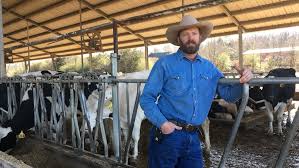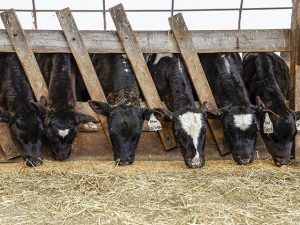
But in recent years, the profit margins have been slim, prompting Matt Simon and crew to adjust and adapt to the changing market.
“Throughout the recent several years, it’s just been a real struggle to come up with enough money at the end of the year to keep going,” Simon said.
One of the U.S.’s top milk processors, Borden Dairy Company, announced its filing for bankruptcy due because of the significant financial struggles and changing consumer habits.
The price of raw milk has increased over 25 percent, according to Borden officials.
Americans are opting in for other drinks besides fluid milk. The U.S. Department of Agriculture reported a 6 percent drop in Americans who drink milk.
From the processor to the farmer, it’s an industry amass with uncertainty.
“The answer’s simple, there’s not been enough money generated through the business to keep everybody happy to stay in business,” Simon said.
Bruce Tencleve, with the Arkansas Farm Bureau, noted over a 20-year-period, the number of dairy farms plummeted from 650 to 33.
Simon Bros. Dairy remains one of those 33 predominantly family-owned operations, which are smaller and more labor-intensive.
“The problem is they don’t ever come back so when you lose that, they’re gone. That’s sad but unfortunately true,” Tencleve said.
Tencleve noted there’s an ever-growing push for the smaller family-operated dairy farms to become mass producers by utilizing thousands of cows for milking versus a couple hundred.
He equates the foreseeable trend to that of soybeans, corn and other crops that are produced in greater quantities.
Tencleve also places partial blame for the milk industry’s poor financial climate on trade.
But there are efforts underway by the Farm Bureau to attract more dairy producers to the Natural State.
“Cost of production be a little bit less, electricity cost, land cost. Those factors, we’re trying to entice people to come here but we just haven’t had that first one to take that jump yet,” Tencleve said.
The Simon family may not have the power to control the markets but they do have the passion to continue serving Arkansans one cow at a time.
“It’s a good lifestyle. I enjoy what we do but at the same time, we have to be able to make some money yo keep going in the future,” Simon said.
The Arkansas farming industry as a whole generates nearly $18 million annually.























